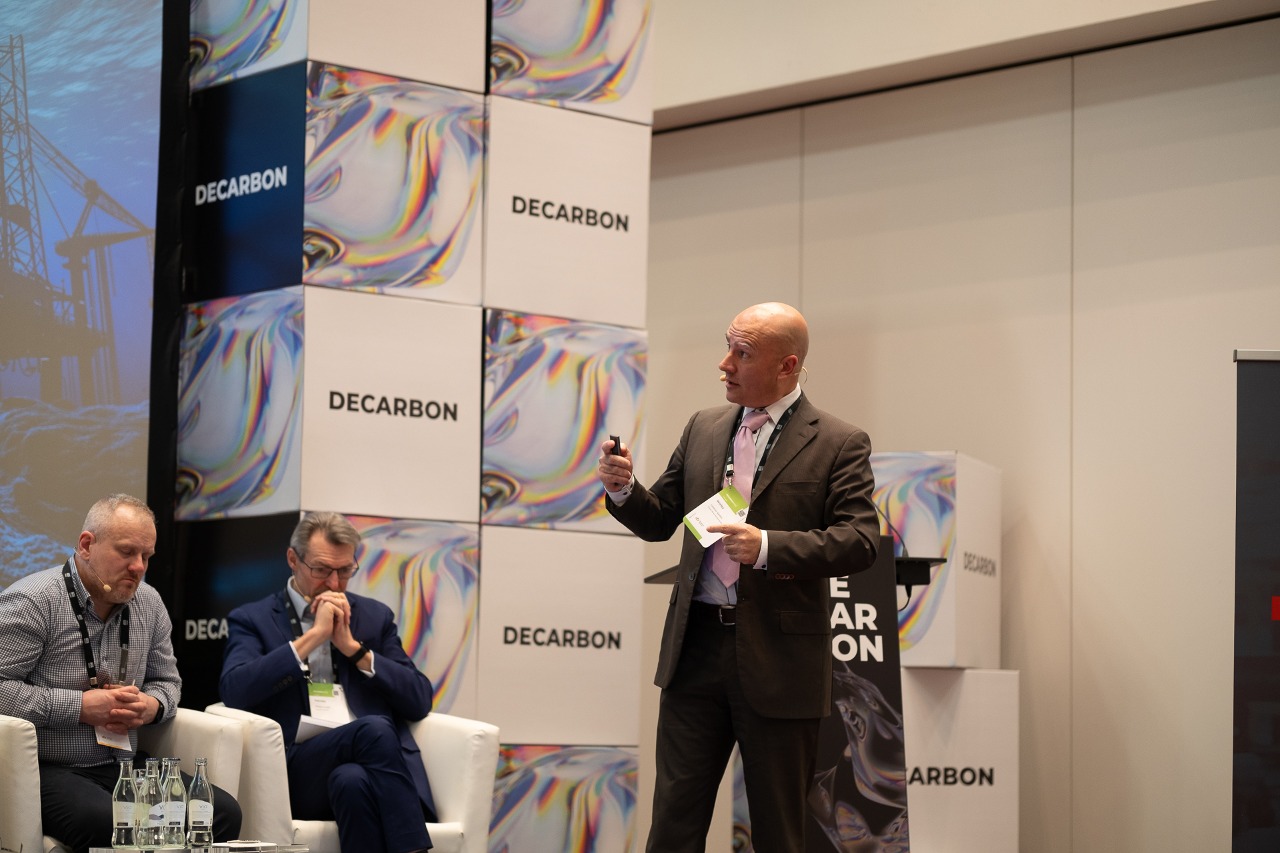DECARBON 2025 brought together industry leaders to chart the course for sustainable energy transition strategies in Berlin, Germany on 10-11 February. Central themes included solutions for reducing carbon footprints across all industry segments, hydrogen production, advancements in refining, integration of circularity principles and others.
The Oil and Gas Decarbonisation Congress (DECARBON 2025) has concluded in Berlin, the heart of the green vision development in Europe. The two-day business programme focused on CCUS for a lower-carbon future, decarbonisation trends and technologies in the oil and gas sector, predictive maintenance for lower emissions and others.
One of the key highlights of the Congress was a panel discussion about H2 Rainbow, which delved into the role of hydrogen in driving the energy journey towards net-zero emissions. This session featured discussions on the standardisation of design and project execution for large-scale renewable hydrogen plants, the implementation of Carbon Capture Utilisation and Storage (CCUS) projects and advanced carbon capture technologies aimed at reducing carbon intensity in hydrogen production.
A notable insight came from Dr. Christoph von dem Bussche, Managing Director at GASCADE Gastransport GmbH, who shared the integration of onshore and offshore hydrogen grids as a critical backbone for combining electrons and molecules in Europe’s decarbonisation efforts. The speaker emphasised the importance of the North Sea as a key region, rich in wind resources and well-positioned for hydrogen production.
He stated, “The region offers several advantages, including important projects for offshore energy infrastructure like AquaDuctus. However, the development of this infrastructure faces legal, financial, technical and spatial challenges.”
Other speakers in the session were Anna Jabloniec-Grüger, Jens Wulff, Javier Fernández de la Fuente, Alexandra Vertlyugina and Dr. Marc Scherle.
Session halls for the second day were crowded, and one of the main points was the panel discussion focused on decarbonisation in the downstream sector, covering critical topics such as water management for energy efficiency, the integration of e-fuels production and advancements in biorefinery technologies.
Dr. Matthias Schwab (Director Sustainability & Global New Business Development at BASF Process Catalysts) highlighted the importance of catalytic technologies in the chemical industry’s shift toward ecological safety.
“At least 80% of the processes in chemical industries require the use of catalysts today. For the energy transition, there is an urgent need for new process technologies and consequently for novel catalytic materials, too,” he said, underscoring the role of catalysts in enabling the energy transition.
Among the speakers of this panel were representatives from MolAquaTech GmbH, XRG Technologies, ElinOil S.A.,OMV Downstream GmbH and Verbio SE.
The agenda concluded with a closing panel focused on circularity across all streams, covering critical topics such as optimisation of Co2 footprint, energy giants’ journey towards meeting EU sustainability goals, technologies and methods for measuring decarbonisation progress.
One of the key speakers, Peter Irlam, Retrofit Specialist at Sulzer, delivered a presentation on transforming ageing industrial equipment. He emphasised the importance of refurbishing inefficient or unreliable industrial equipment instead of replacing it,
“By optimising the performance of high energy assets such as water injection pumps or oil export pumps, they can be returned to operating in their preferred range where they deliver efficiency and reliability with lower running costs.”
The panel ended with Olga Shemberkas, Project Director at BGS Group, delivering closing remarks, thanking delegates, sponsors and partners for their contributions and participation.
Moreover, the Congress featured a dedicated exhibition zone where Novatech AS, Siemens AG, Böhmer GmbH, ITT Bornemann GmbH and others showcased their innovative solution and the latest advancements.
DECARBON 2025 provided insights into anticipated market changes, fostering collaboration and driving efforts towards the industry’s sustainability goals. The next edition of the event will be held on 9-10 February 2026 in Vösendorf, Austria.
To explore the agenda of the DECARBON 2026: https://sh.bgs.group/2e2
This content is restricted to site members. If you are an existing user, please log in. New users may register below.

